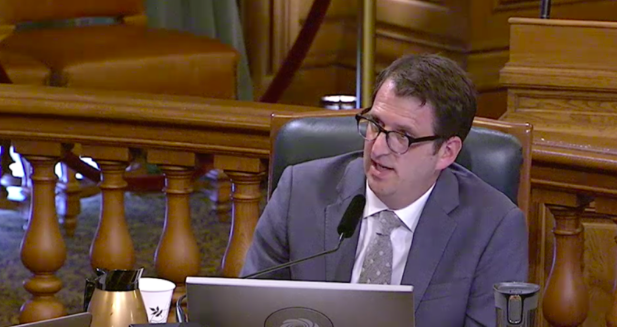According to The New York Times, life for tenants in California is going to be just fine:
Swimming in cash from an unexpected budget surplus and federal stimulus money, California is planning rent forgiveness on a scale never seen before in the United States.
A $5.2 billion program in final negotiations at the State Legislature would pay 100 percent of unpaid rent that lower-income Californians incurred during the pandemic and would be financed entirely by federal money. The state is also proposing to set aside $2 billion to pay for unpaid water and electricity bills.
That, however, is more than a bit misleading. Tenants all over the state are afraid of losing their homes as a moratorium on evictions is set to expire.

And the state money, following federal guidelines, will help only some tenants – and will only cover rent that was due from March 2020 to April 2021.
It involves a complex application process and very little of that money has reached actual tenants or landlords.
The economy is far from back to pre-COVID levels. Tens of thousands of renters are still unemployed or underemployed. They owe rent for May and June, and will soon owe rent for July.
The state is not going to help them.
The city could help, and there’s $63 million in federal money that can go to pay rent incurred after April – but based on information that came out of a June 23 supes hearing, that’s profoundly inadequate. In fact, the data shows, roughly two-thirds of needy tenants in the city won’t get any local or state money.
The mayor’s budget proposal at this point contains zero additional city money for rent relief.
Help us save local journalism!
Every tax-deductible donation helps us grow to cover the issues that mean the most to our community. Become a 48 Hills Hero and support the only daily progressive news source in the Bay Area.
The hearing at the Government Audit and Oversight Committee, called by Sups. Dean Preston and Shamann Walton, focused on how many San Franciscans are behind on their rent – and what the combination of state and local money can do.
The numbers are big: According to the board’s Budget and Legislative Analyst, total rent debt due to the 15 month pandemic shutdown in San Francisco is somewhere between $147 and $355 million. That’s as much as $23 million a month. Even if the state covered every penny from every renter between March 2020 and April 2021 – and it won’t – there’s another $138 million that will accrue by October (less if the economy picks up enough to put a lot of people back to work).
Eric Shaw, director of the Mayor’s Office of Housing, told the committee that his office estimates about 24,500 local households are behind on their rent.
The program the mayor has put forward, he said, would assist between 5,000 and 6,000.
The program, Gen Fujioka, general counsel and senior analyst for the Chinatown Community Development Center, noted, is woefully inadequate:
While the application process is light years ahead of the states, this program will still leave out thousands of tenants who survived the trauma of this pandemic and are still struggling to pay rent.
We see, and we are getting hundreds of calls every week from tenants who are trying to navigate this state program, the local program, how they fit, how do I get in?
But we recognize that many of these tenants will not meet the criteria of what the city has defined as the most vulnerable. They will, therefore, be denied any assistance. We support prioritizing help for the most vulnerable, and we believe this aspect of the program can co-exist with other priorities. But this program was originally discipled, and I’ve spoken to the designers, with an assumption of scarcity and insufficient funds.
Shaw made it clear in his testimony: There’s not enough federal money to help everyone, so the program is focusing on people who are most likely to face homelessness. That’s appropriate, everyone agrees – if you accept the idea that there’s never enough money to help everyone who needs it.
Fujioka said local tenant activists reject that assumption:
After this brutal and prolonged crisis, in which many people who have decent jobs who had a bit of savings, who never before were evicted or homeless, now these tenants need help to pay the rent, too. This city, with millions in reserves, and with new revenue created by the voters specifically to expand rent relief and affordable housing, can, in our opinion, afford to address those needs.
This is where it gets political.
San Francisco voters approved Prop. I, a real-estate transactions tax, last fall specifically to cover this sort of crisis. It’s bringing in more than $100 million a year. But Mayor London Breed is refusing to spend it on rent relief.
If the Prop. I money were put into the pot, there’s pretty close to enough to make sure that no vulnerable tenant gets evicted for failure to pay rent – or is reduced to near poverty and facing collection agents (and possible wage garnishment even if they are working) because of past rent debt.
“We are getting hundred of calls a week of tenants in crisis, who are afraid of being evicted or being in long term debt, many whose landlords are harassing them, or are just leaving to move into unsafe situations,” said Fred Sherburn-Zimmer, Executive Director of the Housing Rights Committee of San Francisco. “The program just needs more money or thousands of tenants will be evicted, and voters voted for more money.”
As Preston put it:
Thousands of San Franciscans in need will be shut out of rent relief—that’s the path we’re on right now. We have an opportunity, and the resources available, to invest in our city’s future by funding additional rent relief now to prevent displacement and homelessness.




